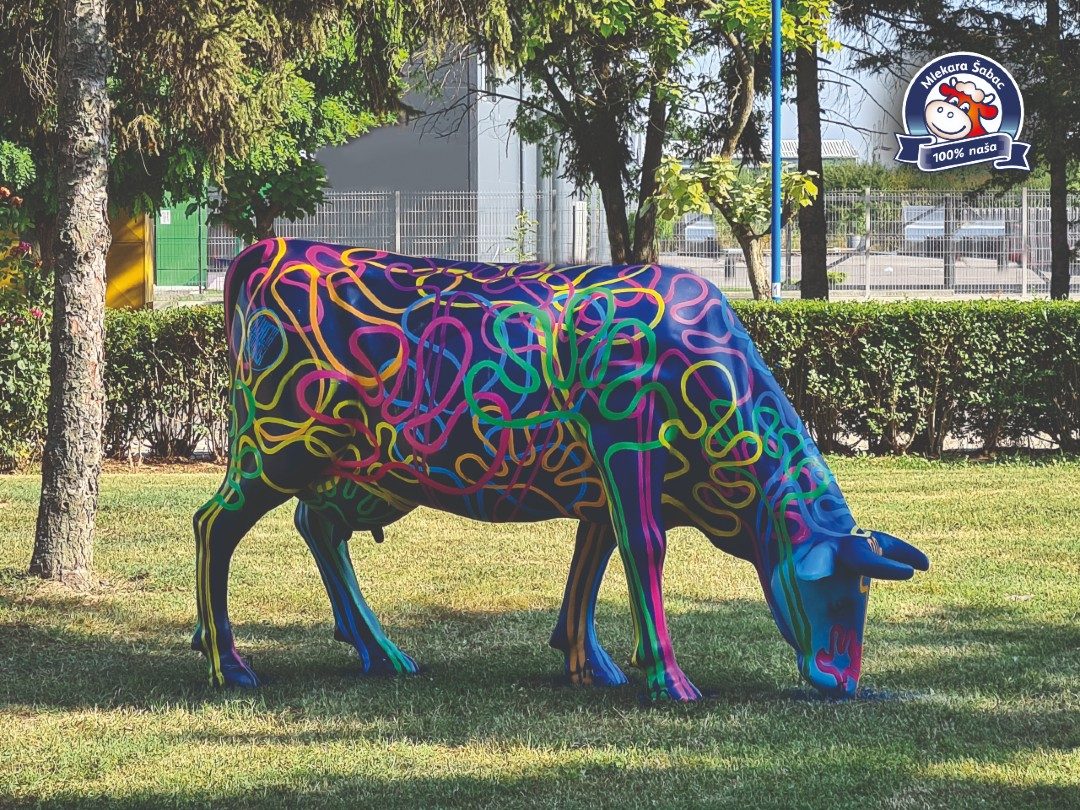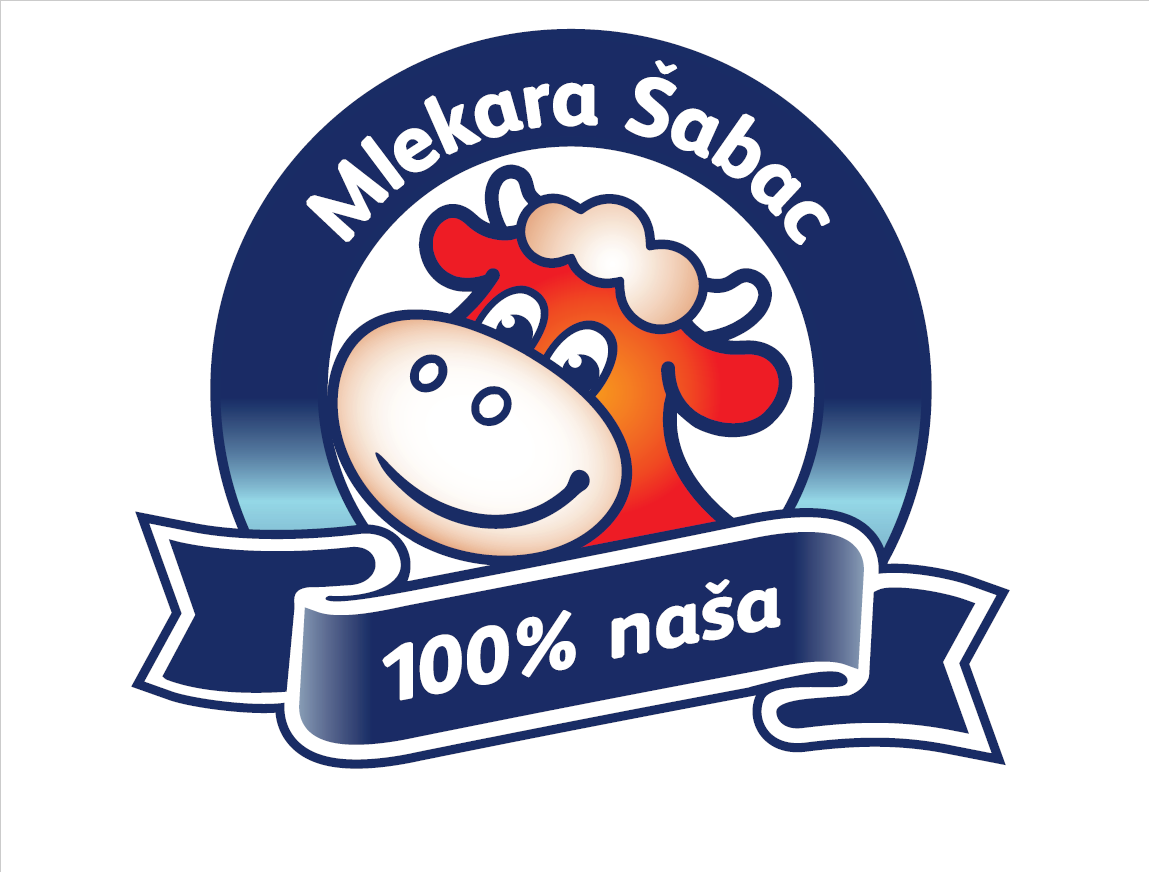I am proud of the fact that today, five years after the acquisition, we sell top-quality dairy products from Serbia to the world, which are enjoyed by consumers from Russia and Europe to the United States.

After two decades of dealing with finances, you decided to get closer to the manufacturing sector and in 2016, you bought the Šabac Dairy. Why?
I started my business career in the years of hyperinflation on the Belgrade Stock Exchange, a financial institution that was in its infancy because it was banned for almost half a century. Soon after, Avram (Dragoslav Avramović, the former NBS governor) came in 1994 and put a cap on hyperinflation by equalizing the value of the Serbian dinar and the German mark in one day. Around the same time, I ‘sailed’ into business waters as an entrepreneur and welcome the birth of my eldest daughter on the first night of the (NATO) bombing. Considering all of this, I did think and hoped that the real sector was somewhat easier, calmer and more stable. The opportunity for me to enter the real sector emerged in 2016 when the Šabac Dairy was offered at auction in bankruptcy proceedings. I used that opportunity to acquired it and subsequently entered a new world – the world of the real sector.
Dairy producers, people who dance to the rhythm of their obligations every day and understand their herd, packaging suppliers, who strive to introduce technological innovations in production every day, retail chains and corporations that do everything to make your product reach valued consumers – they all become a reality which makes you understand that finances were a children’s game.
The beauty of the real sector lies in the fact that every new day brings new excitement and that at the end of that day, you come out with a product in your hands, aware that someone will enjoy the quality of your hard work. That is a serious responsibility. Investing a lot of effort into acquiring the best possible raw materials, into making the entire packaging environmentally sustainable and beautifully designed, into product reaching the domestic and foreign markets safely where thousands and probably millions of people will evaluate, challenge and comment on you… For me, it’s a great satisfaction to finally be in the real sector.
The dairy industry, as such, is under great pressure today to meet all market demands, from environmental and nutritional to global standards in food production
What perspectives does the real production sector, such as dairy, have?
The dairy industry, as such, is under great pressure today to meet all market demands, from environmental and nutritional to global standards in food production. At the same time, the industry is exposed to constant effort to advance, improve its production, cooperate with suppliers and conduct quality control.
Just go back, for a moment, to your childhood and you will remember that dairy products came to you from people you know – whether they were your neighbours, your relatives or an old lady from the farmers market (which you may have looked at strangely because of her headscarf as your mum and dad were inquiring about her health these days). That is exactly the perspective that today’s dairy industry has – striving to return to tradition, but with an even better quality of raw materials, to return but also to learn the childhood tastes of the generation that spends its time using their tablets and mobile phones, as well as to eliminate those producers who mix in vegetable fats to evoke the taste of milk. Did you know that cows Belka and Šarulja, which we all remember so well (we should not forget Ferdinand the Bull too), have the most beautiful eyes? Big, with long lashes and an infinitely warm look even though they have horns… That is the dairy industry’s perspective – warmth, tenderness, that feeling of satisfaction when you bite into cheese, drink a cup of milk or yoghurt, in the company of loved ones.
The Šabac Dairy, which was founded 90 years ago, is today one of the leading dairies in Serbia. What concept will you use in terms of further developing the company’s portfolio and breaking into new markets?
A man whose surname was also Jovanović (no relation to me) called for the association of large milk producers from Mačva to be created back in 1931, and that is how the Šabac Dairy was founded.
For a relatively small dairy like ours, product quality, continuous improvement of business processes and investments are the main trump cards on a global scale. I am proud of the fact that today, five years after the acquisition, we sell top-quality dairy products from Serbia to the world, which are enjoyed by consumers from Russia and Europe to the United States. I feel even greater satisfaction when my friends and acquaintances tell me that they tried our milk and that it smells like milk. For now, we export 60% of products and are present in 14 markets, but we also have ambitious plans for the future.
The development of all economies must become more sustainable by nature, and human society must return to traditional values
Can the further development of the Šabac dairy expedite the development of the entire region of Western Serbia?
Of course, it can! Today, the dairy cooperates with over 700 farms that supply raw milk to us. A large number of them improved their production and hygienic conditions, made new barns and even invested in robotics, thanks to the stability and perspective that the Šabac Dairy gives them. The situation with packaging manufacturers is very similar. They also work continuously on their improvement, give us new ideas and hire new people. When you have a serious company in your surroundings, it attracts new investors – small and big, launches infrastructure projects, deals with the local community and improves relations in the society in which it operates. It provides certainty which then creates a ripple effect.
The only question is how quickly we can feel the progress and to what extent will the community be able to seize the opportunity. That is why it is very important to have the support of the state and banks, and not to be afraid of the new, to accept ideas, to “roll up your sleeves” and work because the results will surely come. The child learns to walk after countless falls, but in the end, it runs. This is how our society should function. Namely, it should utilize the perspective that is offered to it even in “difficult” times, such as this pandemic period.
You have vast experience with investing. What do you think of the potential of the agricultural sector in Serbia, and how can this sector, that called the driving force of economic development, be improved?
The potential of agriculture in Serbia is huge. It always has been. Agriculture “fed” us in the most difficult moments of economic sanctions, (NATO) bombing and the annoying and dangerous coronavirus pandemic. Let’s not forget how many times our relatives from rural areas sent us fruits, vegetables, meat or cheese. That production never stopped. It has “rearranged”, improved somewhere and failed somewhere, but it is always present. The agricultural sector’s budget is growing year-on-year, organic producers are now in focus, and large companies – domestic and foreign – have been investing significant amounts of money in agriculture every year. The Ministry of Agriculture is working to devise and improve various subsidy and investment programmes; from IPARD funds to milk premiums. Are things going fast enough? Of course not, but we must be realistic and try to use every opportunity, fight for every progress, learn that criticism is good, but do not overdo it, because otherwise we will talk a lot and work a little.

Do you think that the crisis caused by the pandemic will be perhaps greater next year than the economic crisis in 2008?
I think the COVID-19-induced crisis is bigger than the 2008 crisis, in financial terms. Its consequences are very difficult to see from the economic, social and political aspect at this moment. The behaviour of the entire human society changed in the course of, practically, one day. Isolation, separation, fear of contact, and at the same time the need to be in the community and to respond to the threat together are the sides of the same medal. Millions of people have lost their jobs, and yet the financial markets are growing, which in my opinion is completely surreal. Freedom of movement and the common markets that have been created following the Second World War have almost disappeared. The neoliberalism, which Margaret Thatcher and Ronald Reagan strongly advocated, has turned into state interventionism reminiscent of communism or socialism, with billions of dollars and euros pumped into individual economies.
Does that mean that we will significantly change our understanding of priorities, our attitude towards nature and family, now that we have had the opportunity to see how the sea in Venice has turned blue again and is not polluted, how the flowers started growing in urban areas again and how deer wandered into cities? I see these as ultimate questions to which society still has no answer. At the time when we are sending rockets to Mars, we humans have a lockdown in most democracies. The economy will surely find the answer; the only hope is that it will not be the case of “The price? It’s a real bargain.“ to quote Sir Oliver from the famous comic book, Alan Ford, because we are now paying that price through this pandemic. The development of all economies must become more sustainable by nature, and human society must return to traditional values – quality over quantity. We also have to foster an attitude towards the future that requires much more responsibility for everything, and above all, for ourselves and our unique planet Earth that we all share.